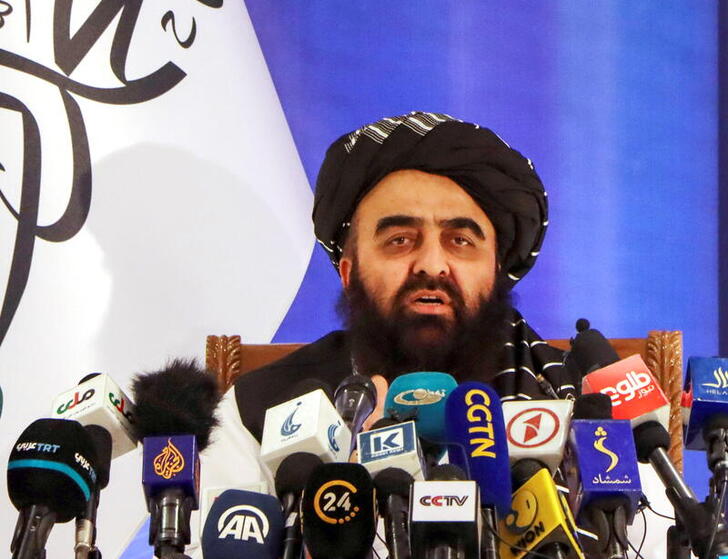An Afghan government delegation headed by Acting Foreign Minister Amir Khan Mottaki left for Norway, in the first visit to Europe from which the Taliban hopes to end the war, while Oslo confirmed that the talks are not diplomatic recognition of the Afghan government.
The French news agency said that the delegation will meet between January 23-25, officials from Norway and several countries, including the United States, Britain, France and Germany, as well as the European Union.
According to the French agency, it is expected that the talks - during the visit, which came at a Norwegian invitation - will focus on issues related to human rights, humanitarian aid and lifting restrictions on the funds of the Central Bank of Afghanistan.
For his part, Taliban spokesman Zabihullah Mujahid said these first official talks of their kind would help "switch the atmosphere of war" after two decades of fighting against foreign forces in Afghanistan.
Mujahid added, "The Islamic Emirate has taken steps to meet the demands of the Western world, and we hope to strengthen the relationship with all countries, including European countries and the West in general, through diplomacy."
He expressed the hope that these talks will help "to change the atmosphere of the previous war to peaceful ones, and create an atmosphere of give and take so that there is political participation full of respect."
In light of the economic deterioration and the severe liquidity crisis, the United Nations warned that hunger threatens 23 million Afghans, and recently called for the release of frozen funds.
Not a diplomatic recognition
On the other hand, Norwegian Foreign Minister Anken Hoetveldt stressed that her country will be "clear" about what it expects, especially about the right of girls to education and human rights.
She stressed that the planned meetings "do not constitute legitimization or recognition of the Taliban," adding, "But we have to talk to the authorities who are running the de facto country. We cannot let the political situation lead to an even greater humanitarian catastrophe."
On Thursday, the European Union announced the restoration of a "minimum presence" of its staff in Kabul in order to facilitate the delivery of humanitarian aid to Afghanistan.
Several countries - including Pakistan, Russia, China, Turkey, the United Arab Emirates and Iran - have kept their embassies open in Kabul, but without recognizing the Taliban government.
A spokesman for the National Resistance Front - which considers itself the most prominent movement opposed to the Taliban - condemned the talks in Oslo.
"We must all raise our voices and prevent any country from normalizing with a terrorist group and considering it a representative of Afghanistan," Ali Nazari, head of the front's foreign relations based in Paris, said in a tweet.

